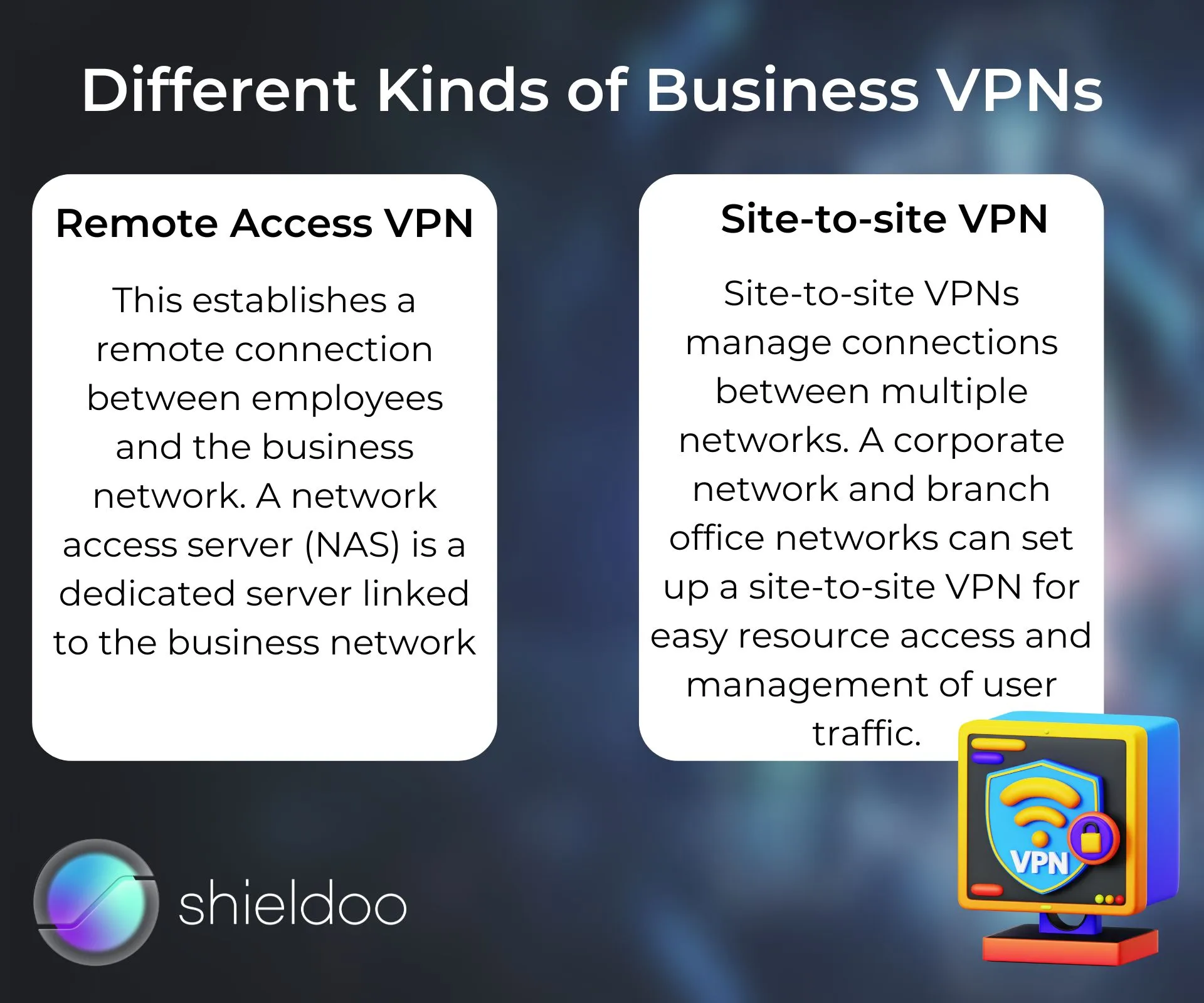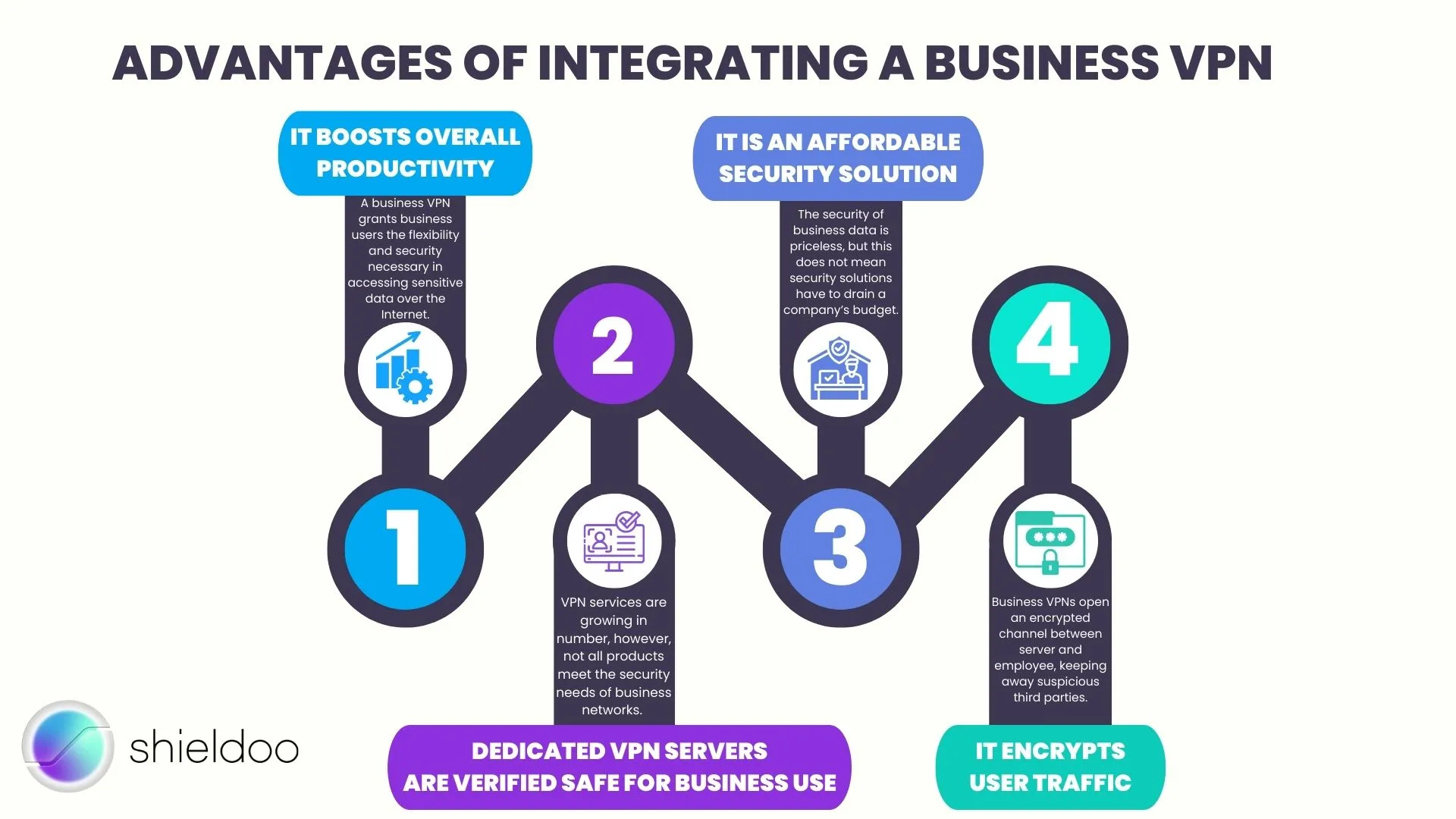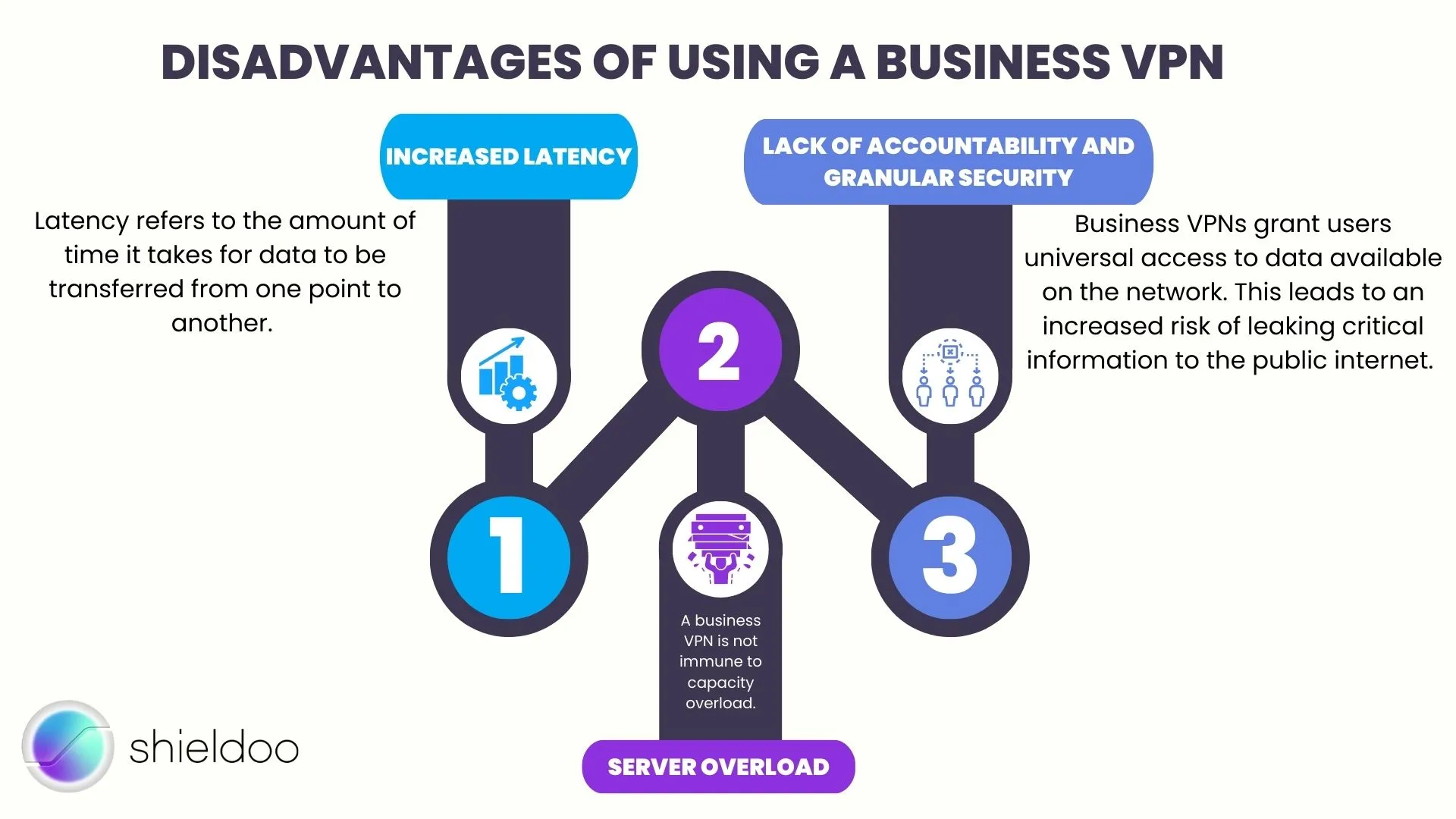A business VPN reinforces the security of remote access by encrypting user traffic. This allows the company to keep a close watch on user activity, all the while cloaking transactions between employees and the company’s servers from the public.

A virtual private network, or VPN, is an encrypted connection for users to connect and access private data across a public network. VPNs provide a cloak of privacy, keeping away prying eyes and ears.
For businesses, securing a private connection between employees and company servers is a top priority. By adding a VPN to their security architecture, critical assets and other resources are protected from suspicious activity.

Most Internet users have experienced using a VPN to access certain geo-locked websites. This is a typical use of consumer VPN. However, businesses utilize VPN to add a security and privacy layer to their private network.
A business VPN is specially developed to cater to the needs of multiple users. As employees access files on the server at recurring times of the day, data loss and internal breaches are highly plausible vulnerabilities. A business VPN mitigates such risks by requiring authorized access.

A consumer VPN replaces a user’s IP address whenever they enable the VPN or switch servers. Meanwhile, a business VPN appoints a fixed IP address and server for the employees to connect to at any time of day.
Read more in the article The Importance of Business VPN
Lorem ipsum dolor sit amet, consectetur adipiscing elit. Suspendisse varius enim in eros elementum tristique. Duis cursus, mi quis viverra ornare, eros dolor interdum nulla, ut commodo diam libero vitae erat. Aenean faucibus nibh et justo cursus id rutrum lorem imperdiet. Nunc ut sem vitae risus tristique posuere.
diam libero
The mesh is a collection of nodes, a lighthouse, and an admin center. The user device is a node, a server is a node, cloud stack is a node, LAN access box is a node.




